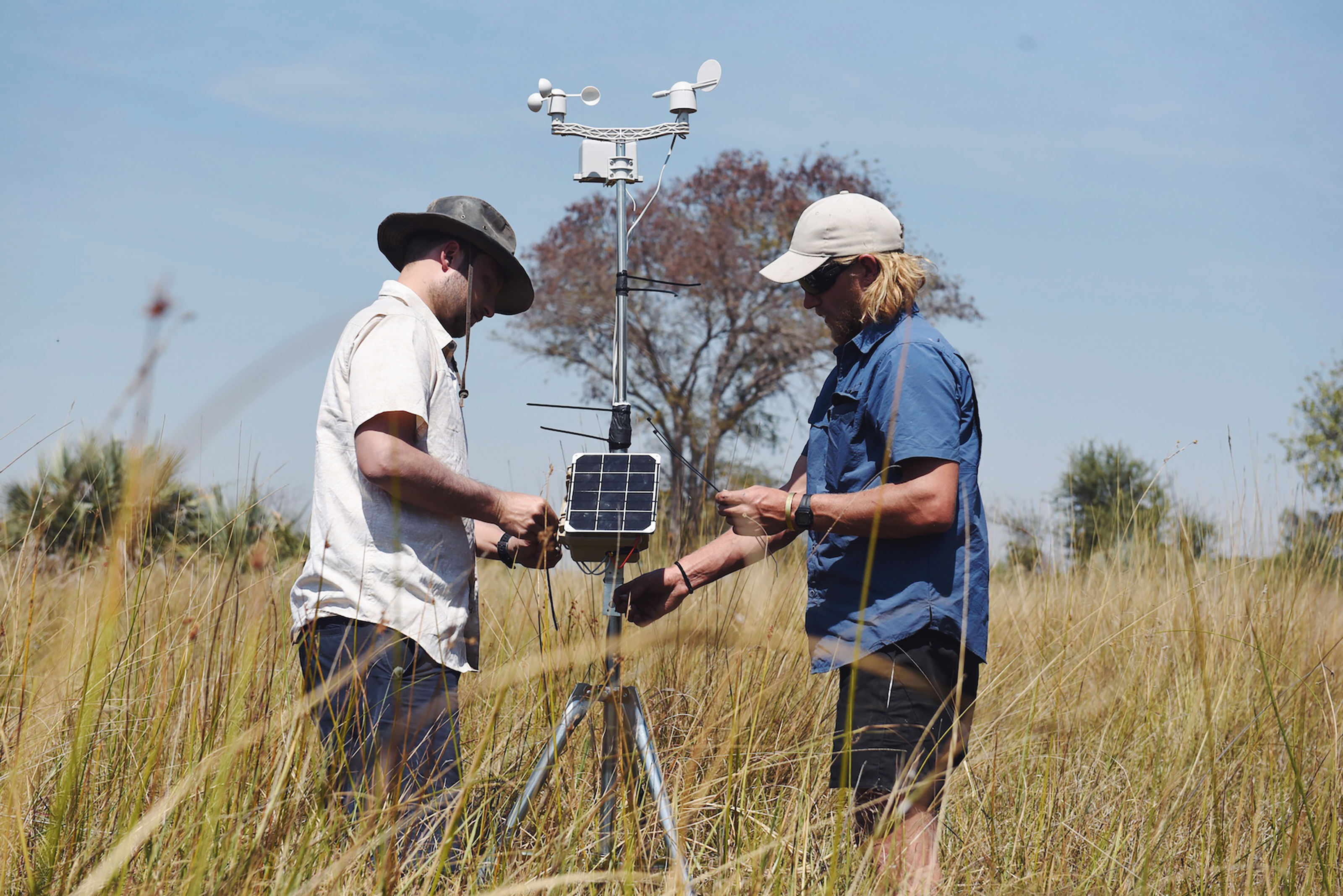
About
The FieldKit Story
At FieldKit, we’re expanding the availability and accessibility of environmental data — an essential but lacking resource for research, climate resilience, and ecosystem protection. Our team of engineers, scientists, and community advocates develop affordable, open-source sensing tools, lead hands-on community workshops, and foster a global knowledge-sharing network.
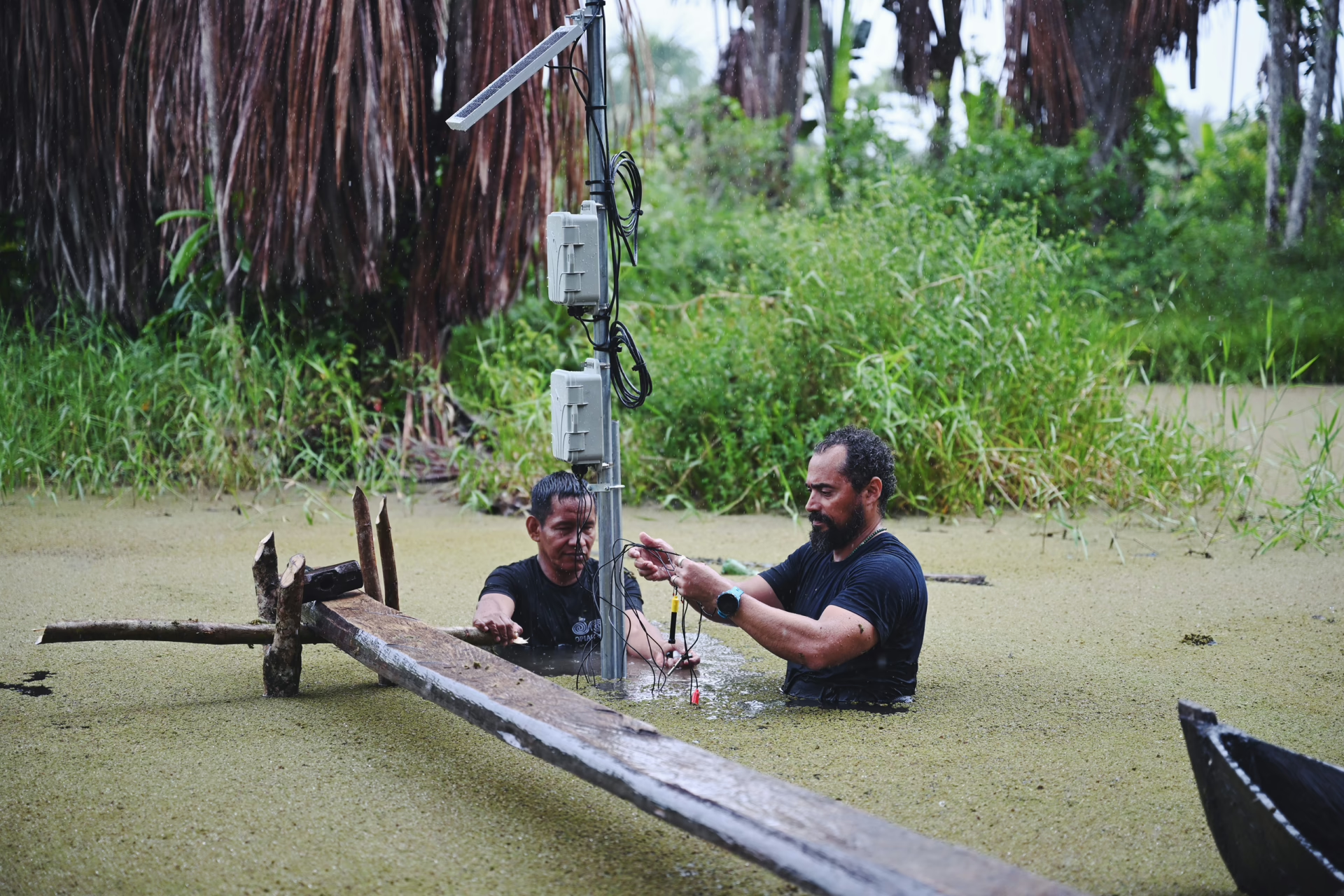
Born in the Field
Flashback to 2016: our founder, Shah Selbe, was working alongside National Geographic’s Okavango Wilderness Project to document and protect one of Africa’s most pristine wetland ecosystems. To support the team’s scientific goals, we cobbled together a DIY sensor network from open hardware, streaming live data on pH, temperature, conductivity, and water flow from one of the world’s most remote river systems. It was early proof that transparent, low-cost tech could connect distant ecosystems and support urgent conservation efforts. Thus began our dream of building the “Internet of Earth Things” — a resilient network of environmental sensors that could empower real-time, open-source conservation science.
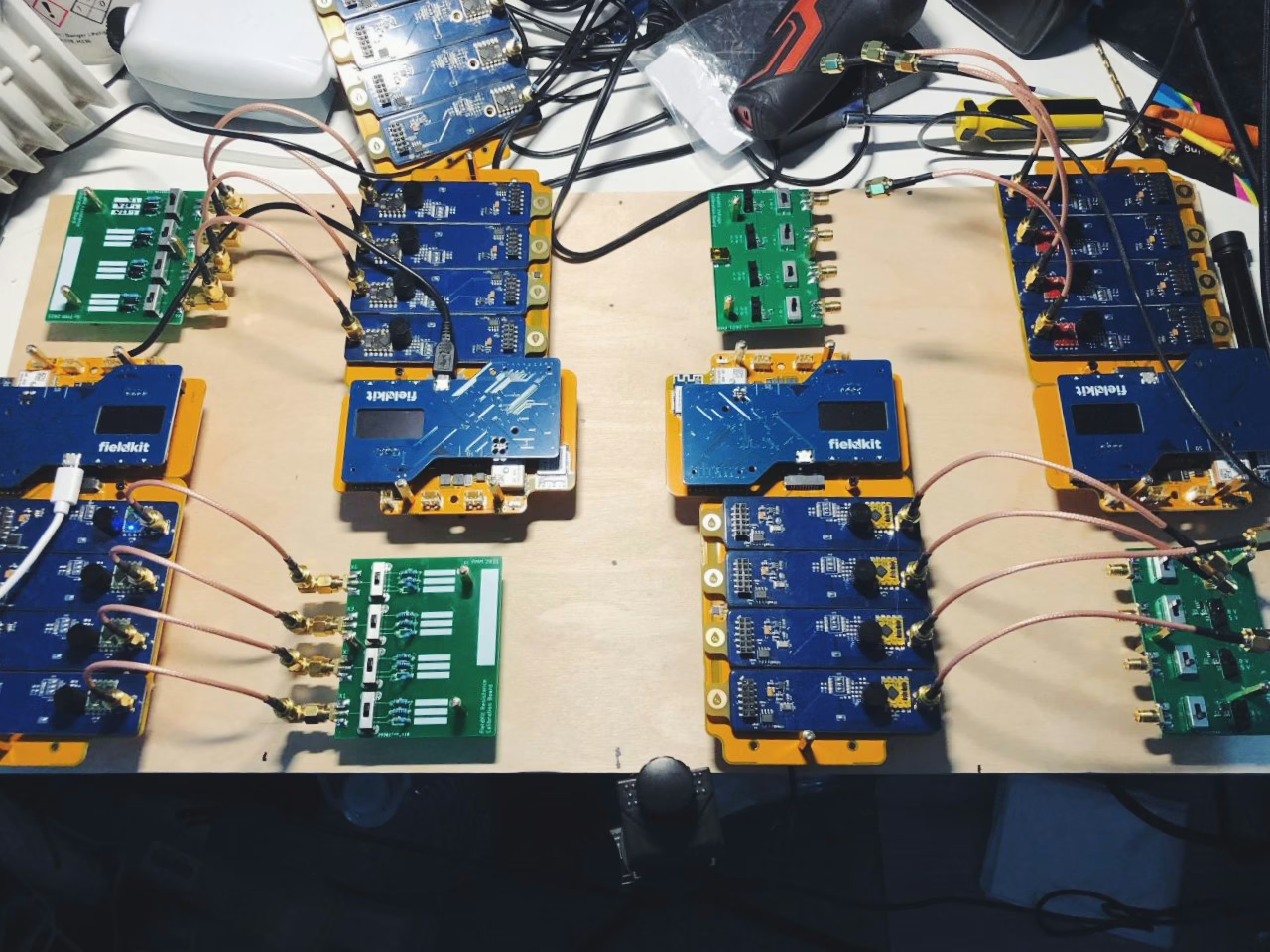
Engineering driven by standards, not shortcuts
We started by testing every water chemistry sensor we could find. None met our standards for accuracy and reliability in real-world conditions. Rather than compromise, we went back to the drawing board and developed our own dissolved oxygen, conductivity, and pH measurement circuits from scratch. The result? The same robust water chemistry modules we use in our own research are now available to you.
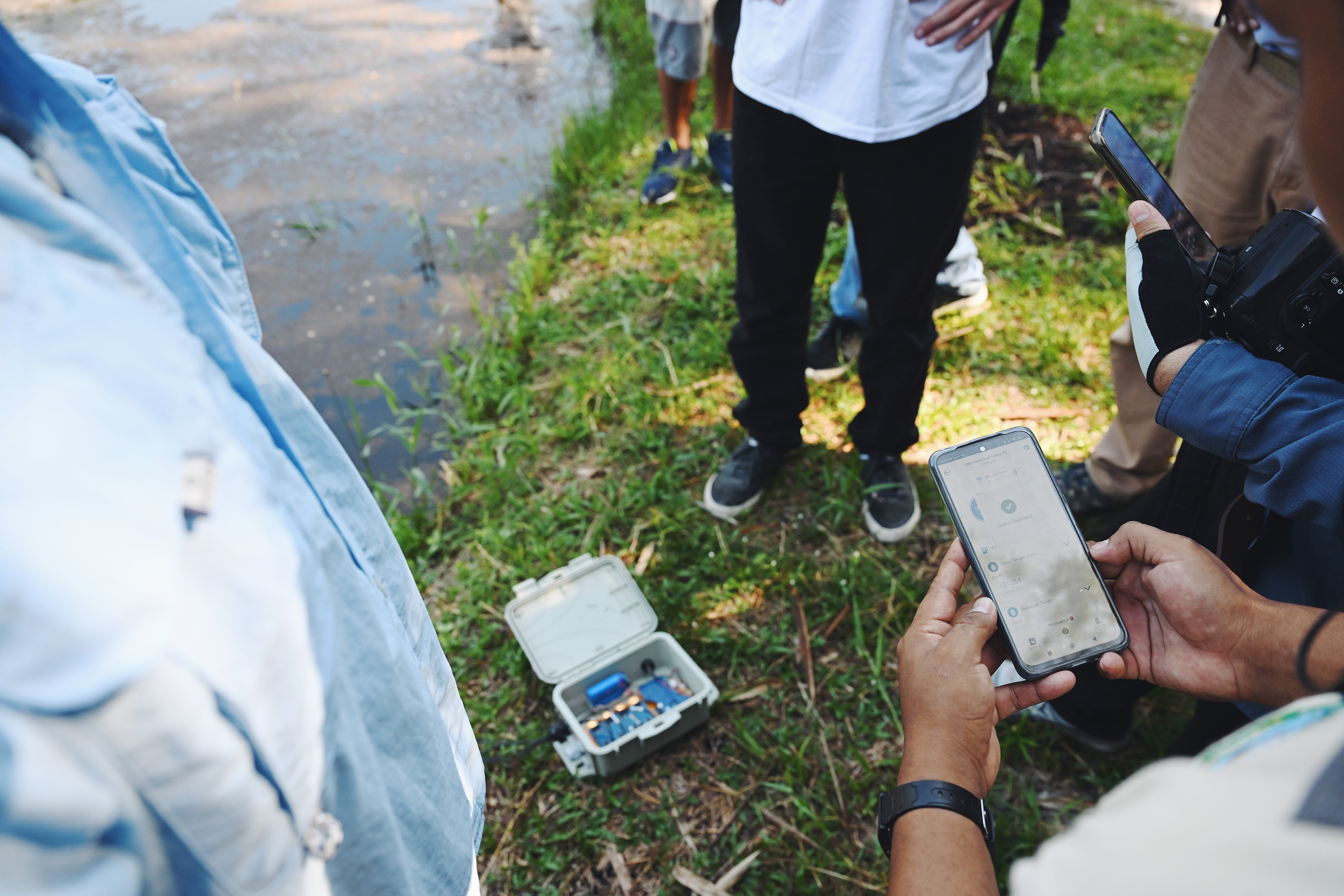
Your data, secured and accessible
We’ve heard too many stories of critical data lost to failed or mislaid SD cards and corrupted memory. That’s why FieldKit includes generous onboard flash storage alongside microSD backup—redundant systems that keep your mission-critical data safe. From there, you can download your data wirelessly via the FieldKit app in the field for later analysis in the comfort of your lab or living room.
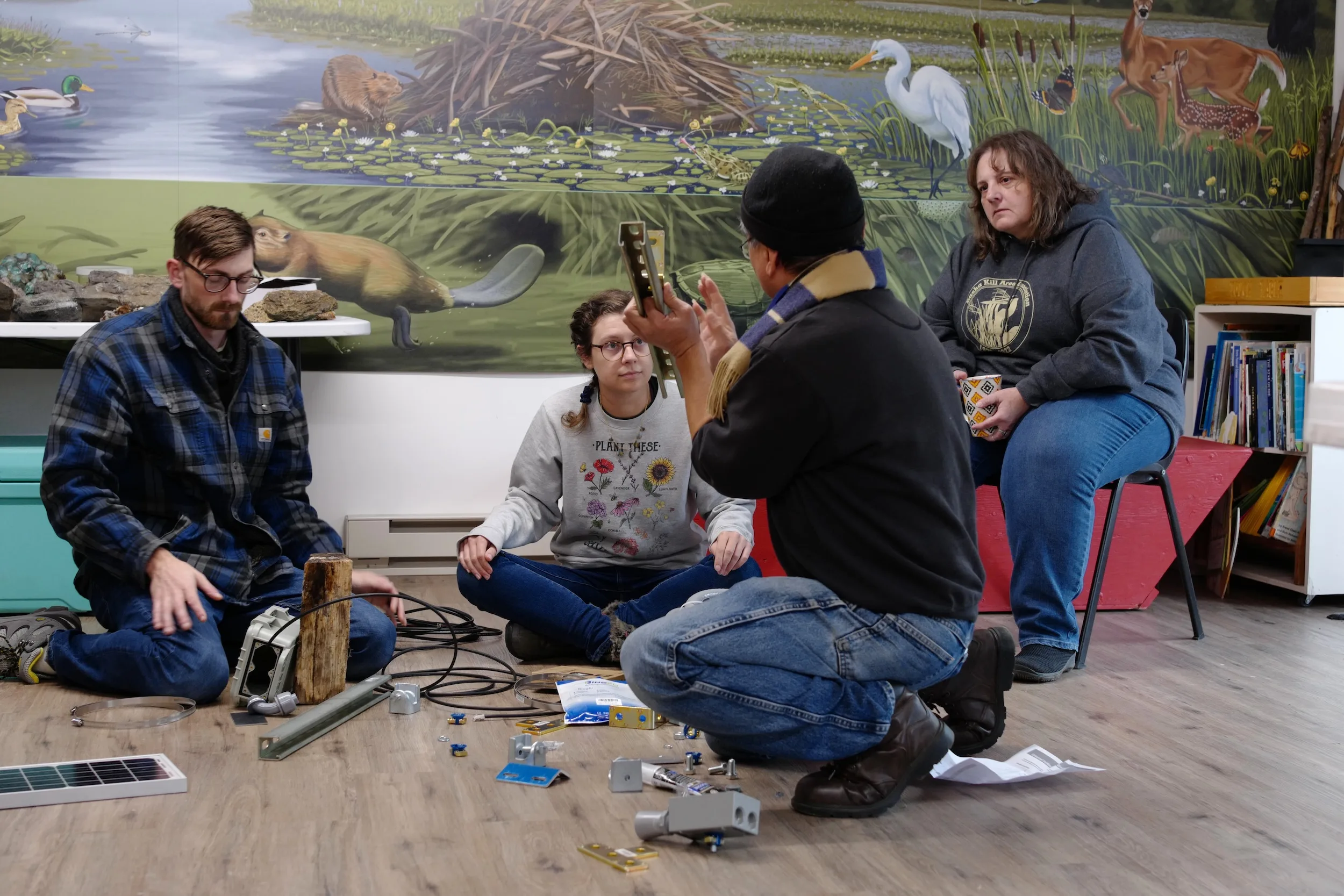
Community focus scaled for global impact
Environmental sensing isn’t set-it-and-forget-it — it takes ongoing teamwork. FieldKit builds affordable monitoring tools and empowers communities to use them. Through our FieldSchool program, local communities, scientists, nonprofits and regional governments come together in hands-on workshops focused on technology deployment, data collection, and analysis. Each FieldSchool addresses regional environmental challenges while contributing to a global monitoring network that shares data insights and sensing knowledge through the FieldKit platform. Since 2023, we’ve conducted FieldSchools from upstate New York to the Amazon, creating lasting networks of technology and people working on local environmental issues.
Our Values
Open
We embrace transparency and collaboration through open-source development, community engagement, and modular systems that are customized and shared.
Accessible
We prioritize affordability and ease of use with strong documentation that bridges the gap between complex science and compelling storytelling.
Reliable
We ensure trustworthiness through accurate, certified data with secure storage systems and durable infrastructure built for long-term service.
Legible
We transform complex information into clear, meaningful insights through effective data visualization that makes patterns and stories immediately apparent.
Responsible
We operate ethically by protecting data integrity, empowering communities to advocate for their environment, and considering environmental impact.
Our Team
Engineers, Explorers, and Problem Solvers
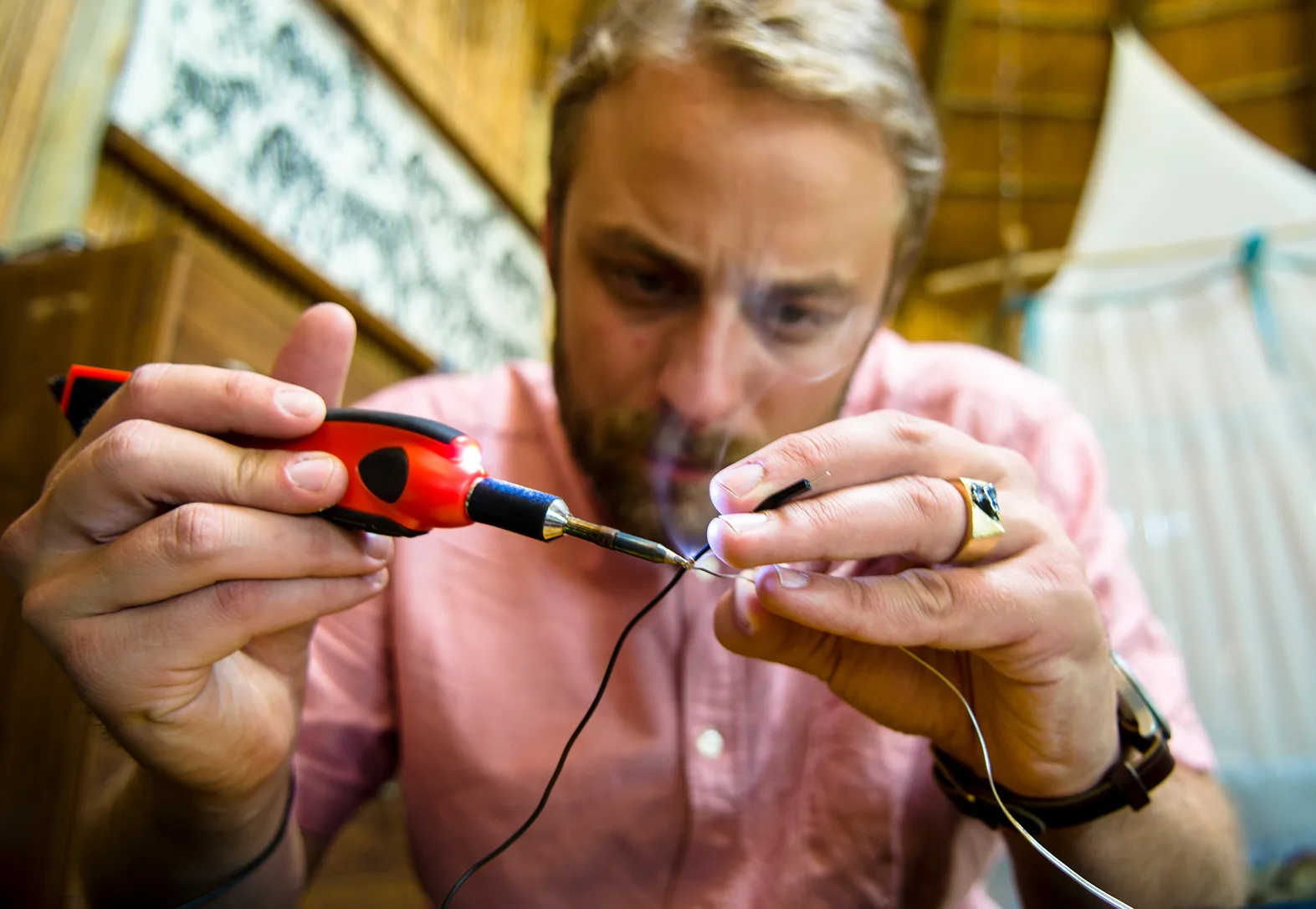
Shah Selbe
Co-founder and Chief Executive Officer
Shah is an engineer, conservation technologist, and National Geographic Explorer who spent 10 years as a rocket scientist building and launching satellites with Boeing before pivoting to conservation technology. His passion for connecting open source technologies with environmental protection has taken him around the globe—from water quality work in Peru’s Boiling River to biodiversity protection in Botswana’s Okavango Delta, glacial monitoring in Canada’s Banff National Park, and drone-based whale tracking in Sri Lanka. He founded FieldKit in 2016 to democratize access to reliable environmental monitoring tools. Shah is a Nelson Institute Fellow at the University of Wisconsin Madison, a New England Aquarium Ocean Conservation Fellow, and sits on the Board of the International Bird Rescue.
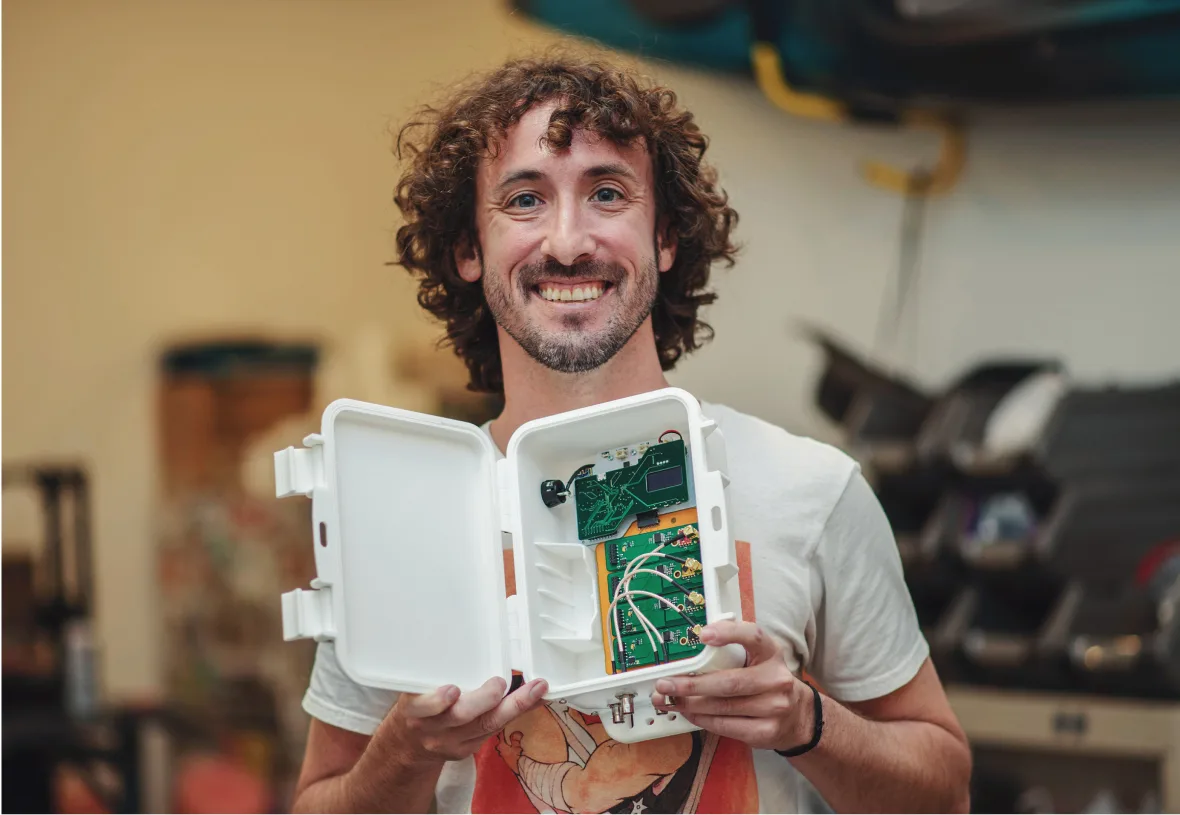
Jacob Lewallen
Chief Technology Officer
Jacob began developing and selling software in high school and has maintained a passion for technology and making ever since. After university, he worked at e-learning startup Eleutian Technology and consulting firm SolutionStream, developing software solutions across industries from education to insurance. Since joining FieldKit, Jacob has combined his technical expertise with hands-on field and lab work, solving engineering challenges in exotic locations with unique demands. He’s the mastermind behind FieldKit’s firmware, data portal, and mobile app, serving as both a critical technical architect and field problem solver. In his free time, Jacob has a voracious appetite for making things, learning how to make things, and hearing about how others make things.

Susan Allen
Chief Operations Officer
Susan drives FieldKit’s operations with a systems mindset, aligning vision, programming, and product development for maximum impact. A holistic thinker and cross-functional collaborator, she excels at transforming rough ideas into meaningful real-world experiences while balancing great results with great process. With over 18 years in multimedia production and process optimization, her career has spanned London, New York, and Los Angeles. Before joining FieldKit, she led the project management team at award-winning experience design studio Local Projects and directed an 8-part web series. She also practices graphic design, illustration, and silver jewelry-making, bringing creative problem-solving to operational challenges.

Bradley Gawthrop
Hardware Lead
Bradley leads all aspects of hardware at FieldKit, designing all the FieldKit hardware and overseeing its manufacture. After joining FieldKit in 2018 Bradley developed the hardware design of FieldKit, which won the 2019 Hackaday Prize. His innovative work developing a novel pH sensing circuit for FieldKit was presented at the American Geophysical Union, and Bradley is a regular and compelling speaker at other conferences including Hackaday Superconference and the Open Hardware Summit. Before FieldKit, Bradley designed hardware in diverse areas including low voltage control systems, automotive power, and large scale LED art installations. The rest of his unconventional career history has spanned graphics design, printing, and the design, construction, and restoration of pipe organs.
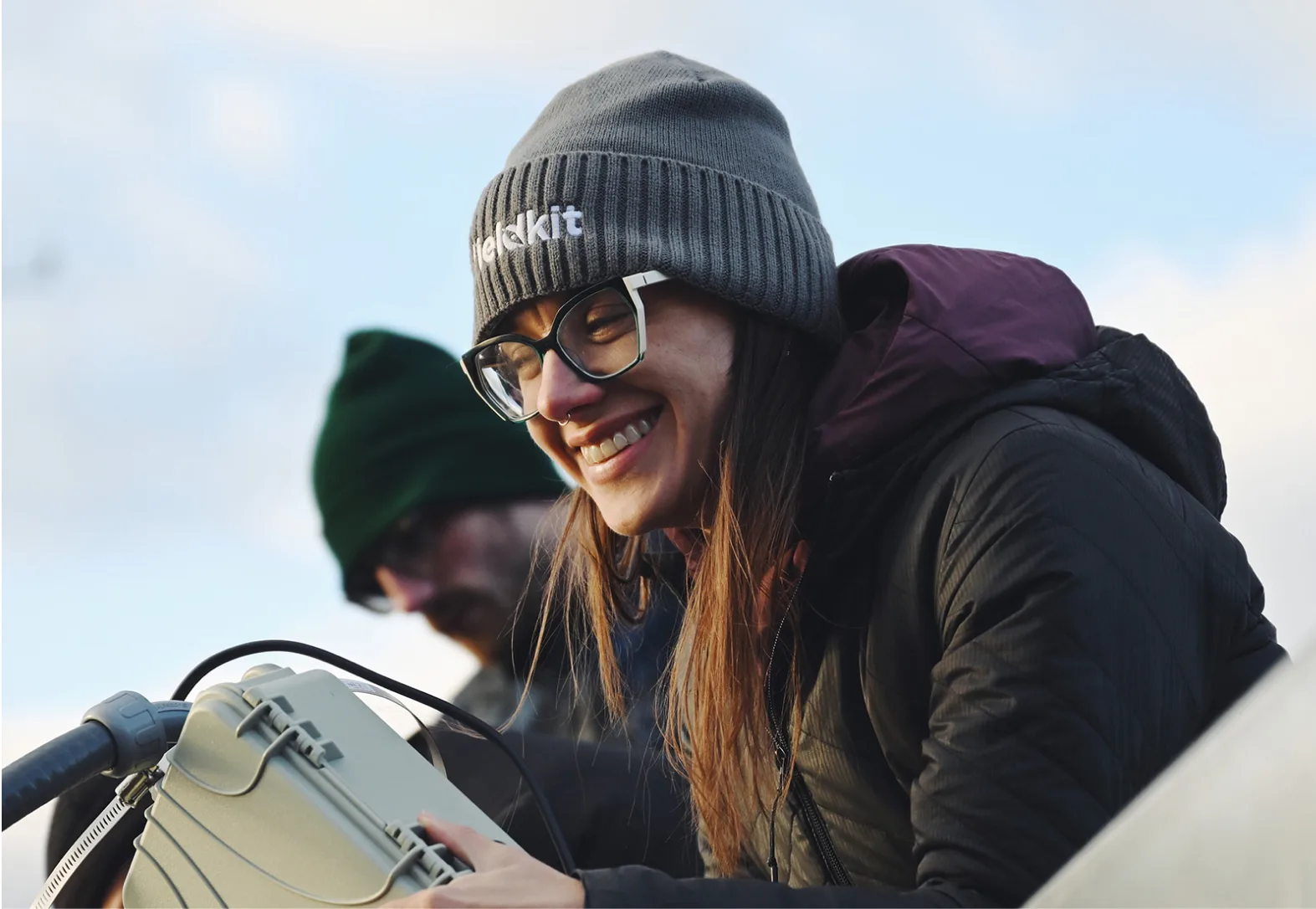
Lindsay Starke
Content and Community Manager
Lindsay nurtures and grows FieldKit’s customer, partner, and community relationships while spearheading content strategy. Though she began her career as a writer and editor, a passion for connecting people through technology moved her into the community space where she has worked for 15 years. Prior to joining FieldKit, Lindsay was lead community strategist at Higher Logic, where she worked with dozens of organizations building engagement between their members and customers. Her experience spans content creation, community building, and strategic communications. Lindsay is also a certified personal trainer and accomplished strength athlete, bringing the same dedication to physical challenges that she applies to building strong communities.
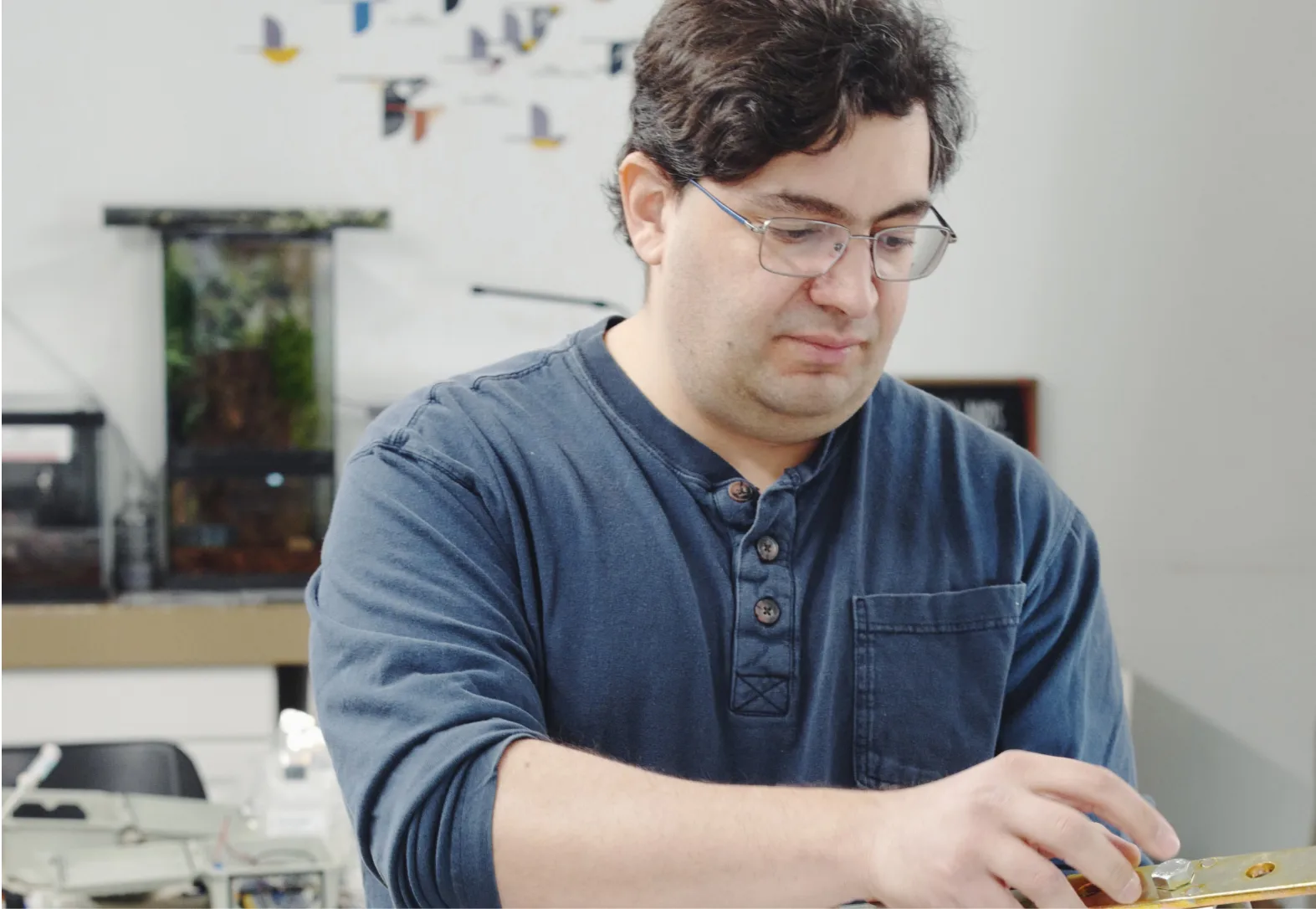
Pete Marchetto
Research Engineer and Instrumentation Scientist
At FieldKit, Pete handles calibration, sensor selection, evaluation, and system testing—bringing two decades of experience building and testing scientific instrumentation. Previously an assistant professor at the University of Minnesota’s Bioproducts and Biosystems Engineering department, he specialized in novel biological and environmental instrumentation design across fields from animal behavior to field hydrology. Pete earned his PhD in Biological and Environmental Engineering from Cornell University, where he built acoustic recording devices for the Cornell Lab of Ornithology and field instrumentation for the Cornell Soil and Water Lab. His extensive background as a calibration technician and instrumentation builder brings crucial expertise to FieldKit’s sensing system development.